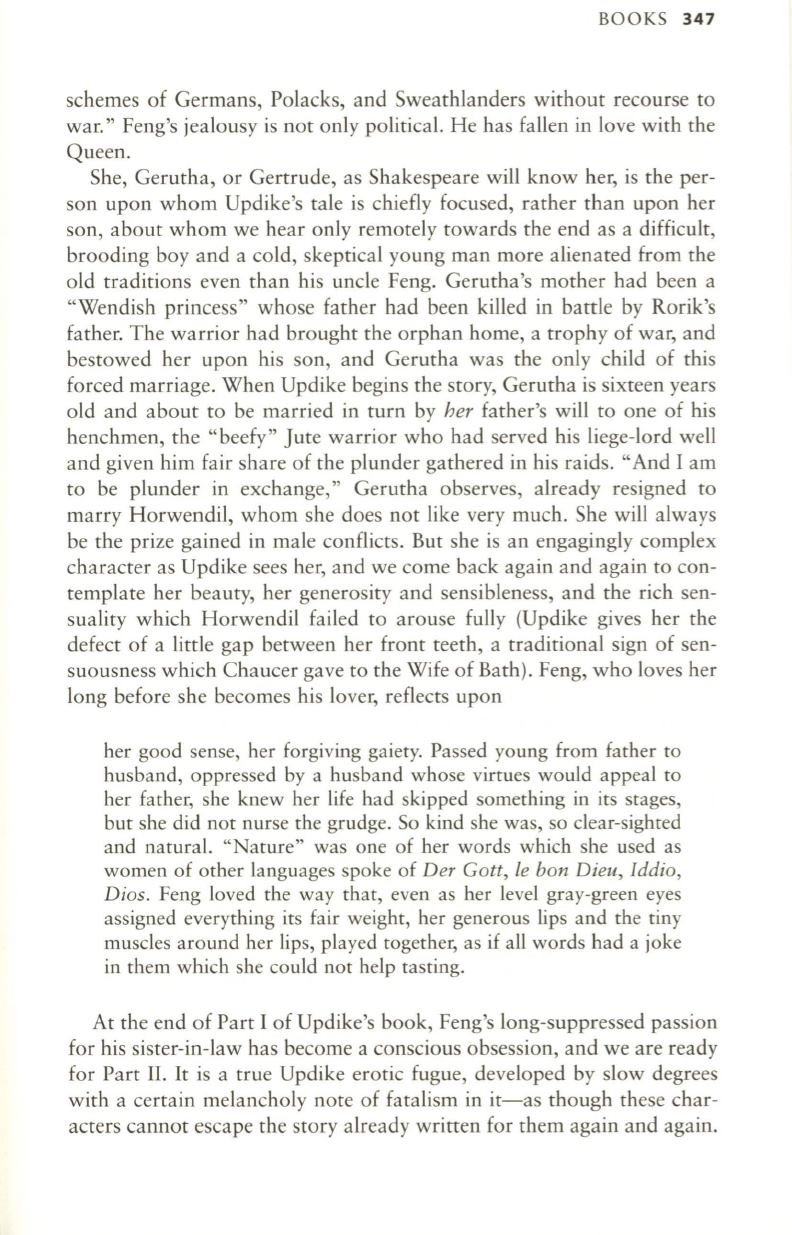
BOOKS
347
schemes of Germans, Polacks, and Sweathlanders without recourse to
war." Feng's jealousy is not only political. He has fallen in love with the
Queen.
She, Gerutha, or Gertrude, as Shakespeare will know her, is the per–
son upon whom Updike's tale is chiefly focused, rather than upon her
son, about whom we hear only remotely towards the end as a difficult,
brooding boy and a cold, skeptical young man more alienated from the
old traditions even than his uncle Feng. Gerutha's mother had been a
"Wendish princess" whose father had been killed in battle by Rorik's
father. The warrior had brought the orphan home, a trophy of war, and
bestowed her upon his son, and Gerutha was the only child of this
forced marriage. When Updike begins the story, Gerutha is sixteen years
old and about to be married in turn by
her
father's will to one of his
henchmen, the "beefy" Jute warrior who had served his liege-lord well
and given him fair share of the plunder gathered in his raids. "And I am
to be plunder in exchange," Gerutha observes, already resigned to
marry Horwendil, whom she does not like very much. She will always
be the prize gained in male conflicts. But she is an engagingly complex
character as Updike sees her, and we come back again and again to con–
template her beauty, her generosity and sensibleness, and the rich sen–
suality which Horwendil failed to arouse fully (Updike gives her the
defect of a little gap between her front teeth, a traditional sign of sen–
suousness which Chaucer gave to the Wife of Bath). Feng, who loves her
long before she becomes his lover, reflects upon
her good sense, her forgiving gaiety. Passed young from father to
husband, oppressed by a husband whose virtues would appeal to
her father, she knew her life had skipped something in its stages,
but she did not nurse the grudge. So kind she was, so clear-sighted
and natural. "Nature" was one of her words which she used as
women of other languages spoke of
Der
Gott,
Ie
bon
Dieu,
Iddio,
Dios .
Feng loved the way that, even as her level gray-green eyes
assigned everything its fair weight, her generous lips and the tiny
muscles around her lips, played together, as if all words had a joke
in them which she could not help tasting.
At the end of Part I of Updike's book, Feng's long-suppressed passion
for his sister-in-law has become a conscious obsession, and we are ready
for Part
II.
It is a true Updike erotic fugue, developed by slow degrees
with a certain melancholy note of fatalism in it-as though these char–
acters cannot escape the story already written for them again and again .


